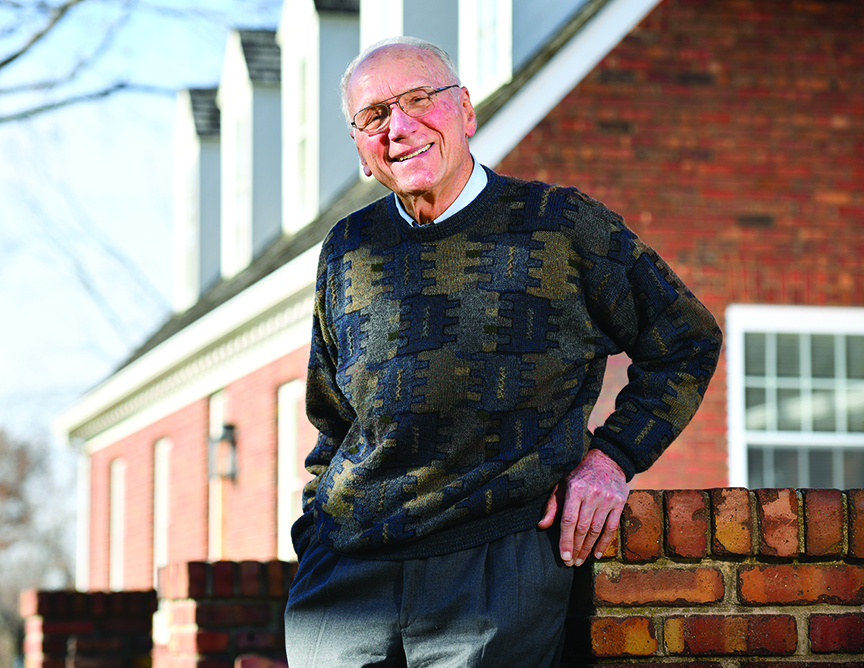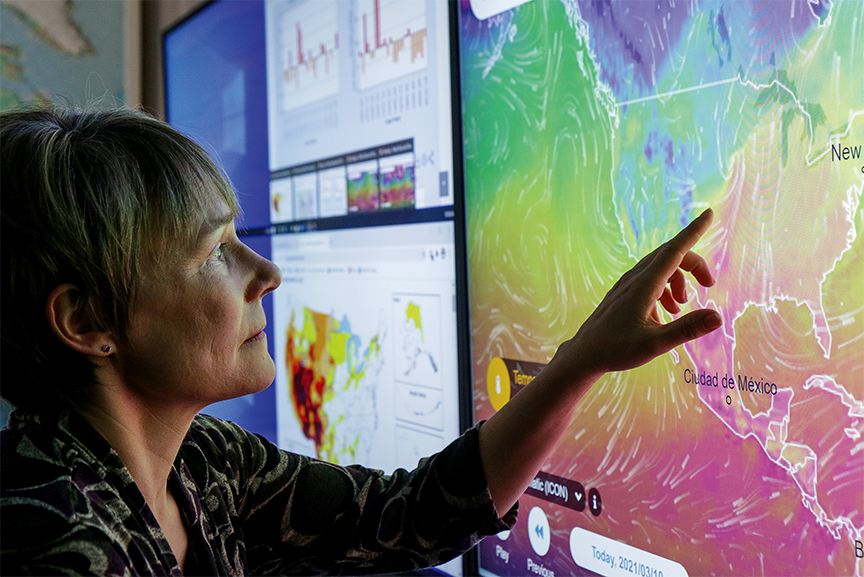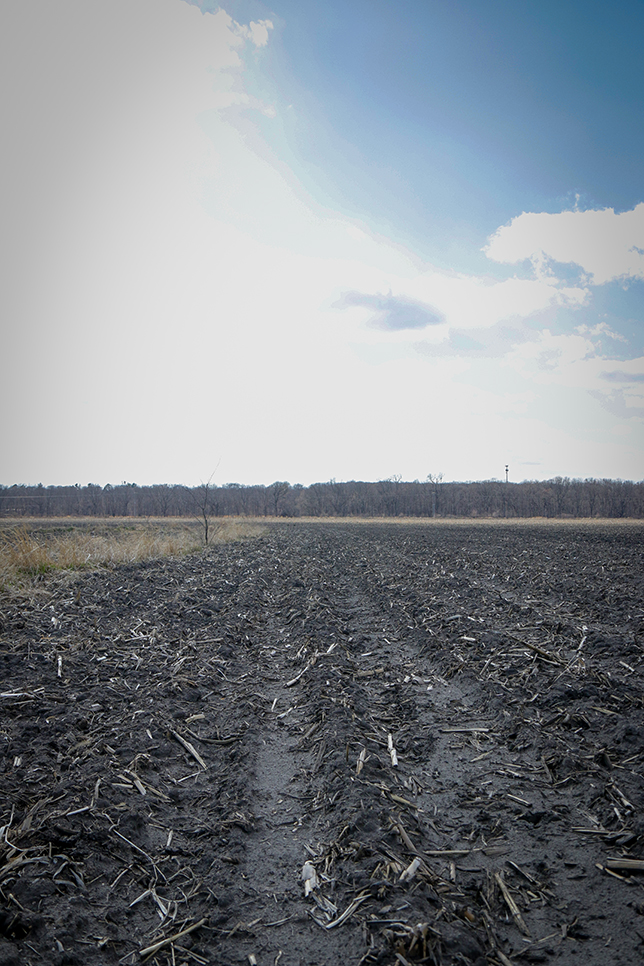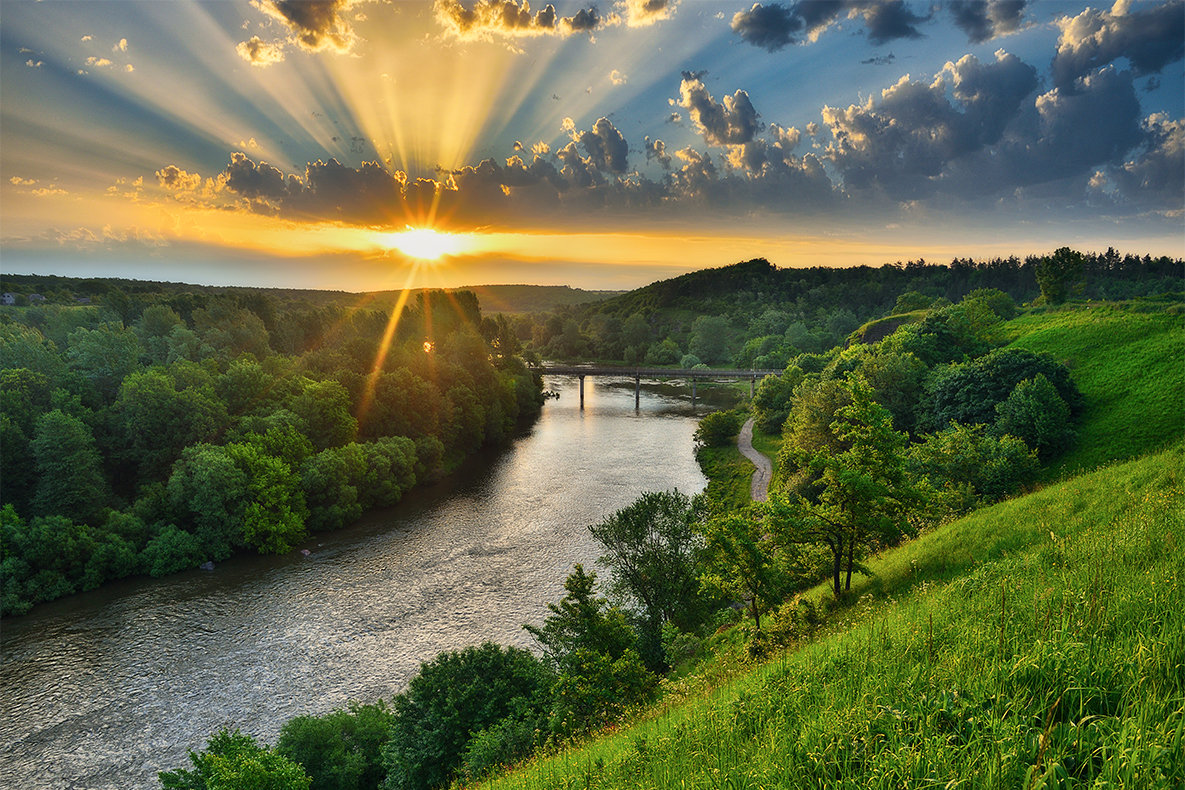A perfect storm is brewing in Iowa State’s Department of Geological and Atmospheric Sciences, but it has nothing to do with high winds, vigorous thunder and lightning, or a deluge of precipitation.
No, this storm is quite different from those that roll across Iowa’s dusty farm fields on hot, sticky summer evenings. What the department is experiencing is only figurative and definitely not negative. On the contrary, their perfect storm is exciting, challenging and hopeful.
New horizons
For the past few years, the faculty and staff in the Department of Geological and Atmospheric Sciences have sought to develop a new major for undergraduate students focused on climate science. The challenge was determining how to offer a new, robust program with no additional funding.
During this same time, Dr. John Graether, a retired ophthalmic surgeon from the Wolfe Eye Clinic in Marshalltown, Iowa, who is deeply concerned about climate change, was contemplating ways in which he could impact climate science education.
In February 2020, Graether discovered that Bill Gutowski, professor of atmospheric sciences, was speaking about climate change at Marshalltown Community College. Graether attended Gutowski’s talk and set up a later lunch meeting with Gutowski and others from Iowa State to discuss how he might financially assist the university with raising climate change awareness.
The perfect storm was building.
Generous gift

After finalizing details for several months, Graether formally donated $2.2 million to Iowa State to create the Graether Family Fund for Climate Science Advancement. The fund, established through the Iowa State University Foundation, will support the Department of Geological and Atmospheric Sciences to grow interdisciplinary climate science programming that will encompass several areas of study across the university, including statistics, sustainability, computer science, sociology, communication, design and more.
“My intent was to fund a modest program at first. Then I got to thinking about a more substantial gift and what that would enable them to do.”
Graether’s connection to Iowa State is through his son, Bruce, now deceased, who graduated from Iowa State in 1979 with a physics degree. He is well aware of Iowa State’s stellar reputation in the sciences.
“I was always impressed by Iowa State’s science emphasis and top departments such as agronomy. Also, the veterinary medicine school, one of the top in the country,” Graether said. “My intent was to fund a modest program at first. Then I got to thinking about a more substantial gift and what that would enable them to do.”
Graether’s wish is that the funding be used to further education and outreach related to climate science, not just research advancements.
“John’s gift will allow us to train a lot of people who end up becoming teachers at K-12 schools as well as working with businesses,” Gutowski said. “The research is very important, it’s what I’ve done for my career. But you want to see that the research has an impact on something important and that it’s going somewhere. That’s what John wants to see.”
Major development

With funding in place, the department is enthusiastically developing an innovative new climate science major. Kristie Franz, chair of the Department of Geological and Atmospheric Sciences, is finalizing plans to hire a new teaching professor, who will help propel the major forward. Initially, though, it will be introduced as an interdisciplinary studies program in climate science, enrolling students by fall semester 2021.
“This is a first step. The process for proposing a major takes time,” Franz said. “We wanted to get this out there as fast as we could, and with the enthusiasm of Dr. Graether, we’re like, let’s get this going right away.”
Franz is hopeful that the full climate science major and minor will launch by fall semester 2022.
Beyond science

The major’s core curriculum will be a scientific mixture of geology and meteorology with classes in earth history, paleoclimatology, oceanography, modern climate and climate change. Students will also take classes in science communication and statistics. From there, they will choose coursework in specific focus areas. So far, those focus areas are advanced climate science, sustainability design and planning, and science visualization but plans are in the works to expand those areas once the new program is solidified.
Iowa State’s climate science major will emphasize interdisciplinary courses, pulling in electives from political science, sociology, agronomy, economics and design.
“It became much more interdisciplinary than I ever imagined it possibly could be,” Franz said. “It’s a very different type of major, but I think it’s a major for the current century.”
Iowa State’s climate science major will blaze new academic trails. To date, very few universities in the United States offer a degree dedicated to climate change. Franz believes future Iowa State students will be excited about and committed to the program.
“Students want to have an impact. Climate is one of the most defining issues of their generation and it’s going to continue,” Franz said. “They recognize climate change as an issue, they accept the science, they accept that the climate is changing and they are concerned about it. I also think they are savvy enough to understand that it’s not just about science. It’s also about the human factor.”
Long-term impact
Graether is confident that the new climate science major will be the appropriate foundation for students to achieve success in a multitude of careers, from architecture to nonprofits to insurance companies. And, he believes Iowa State is the perfect place to prepare them for their future.
“Iowa State is in a unique position to lead on climate science because of the agricultural innovation being pioneered here, for instance carbon-capture practices. People with this kind of background are going to have a nice foundation to build on,” Graether said.
“Students want to have an impact. Climate is one of the most defining issues of their generation and it’s going to continue.”
As Franz and other members of the Department of Geological and Atmospheric Sciences prepare to launch the new climate science major, her thoughts circle back to the serendipitous start to this project.
“The timing of this is just incredible with the department talking about it for the last year or so, and then Dr. Graether coming along and being so generous,” she said. “It’s nice to work on something so positive in a challenging time.”
And that is a perfectly positive storm.
